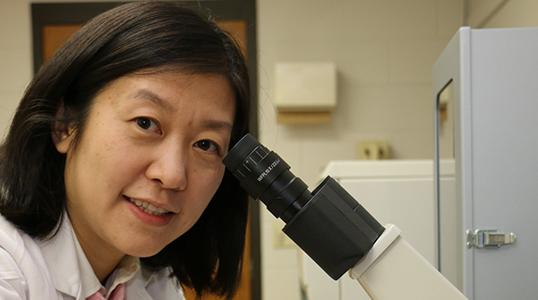ORIP offers Institutional Research Training Grants to encourage veterinarians to consider a career in biomedical research. Awards are made directly to veterinary schools and other research institutions that are in a position to provide advanced training in comparative medicine or comparative pathology. The Postdoctoral Program for Veterinarians (T32 [funding opportunities]) trains highly qualified veterinarians for research careers in biomedical areas related to comparative medicine. The research accomplished under this training program should provide the trainee with the necessary tools to successfully compete for independent grant funding (often a K01 [funding opportunities] or K99 [funding opportunities]). The Summer Programs for Veterinary Students (T35 [funding opportunities]) provide research training experiences for selected veterinary students for periods of 2 to 3 months. The objective is to attract highly qualified veterinary students to biomedical and biobehavioral research. Further information can be found in the relevant notice of funding opportunity (NOFO) originally published in the NIH Guide for Grants and Contracts or the Division of Comparative Medicine (DCM) Program Guidelines.
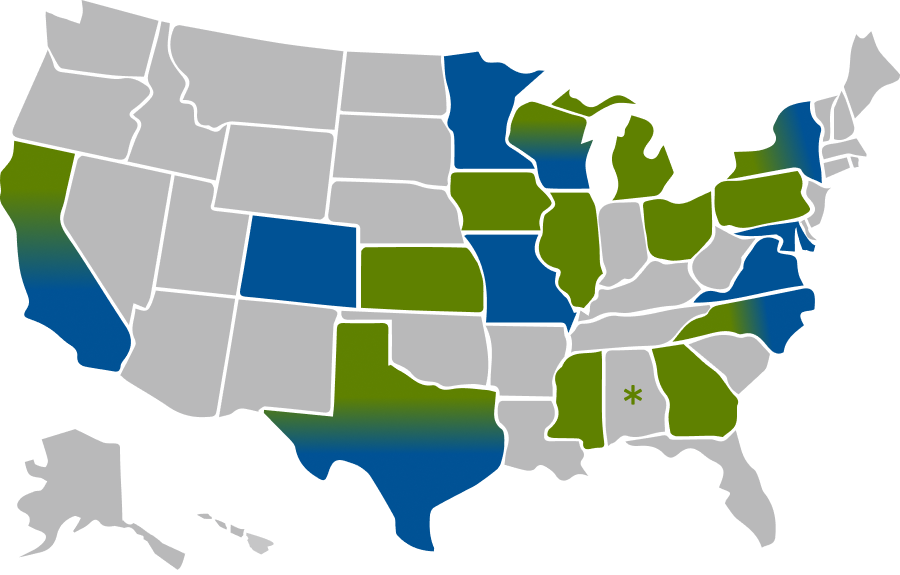
Legend
List of States by Institutional Award
University of California, Davis
Major Areas of Interest
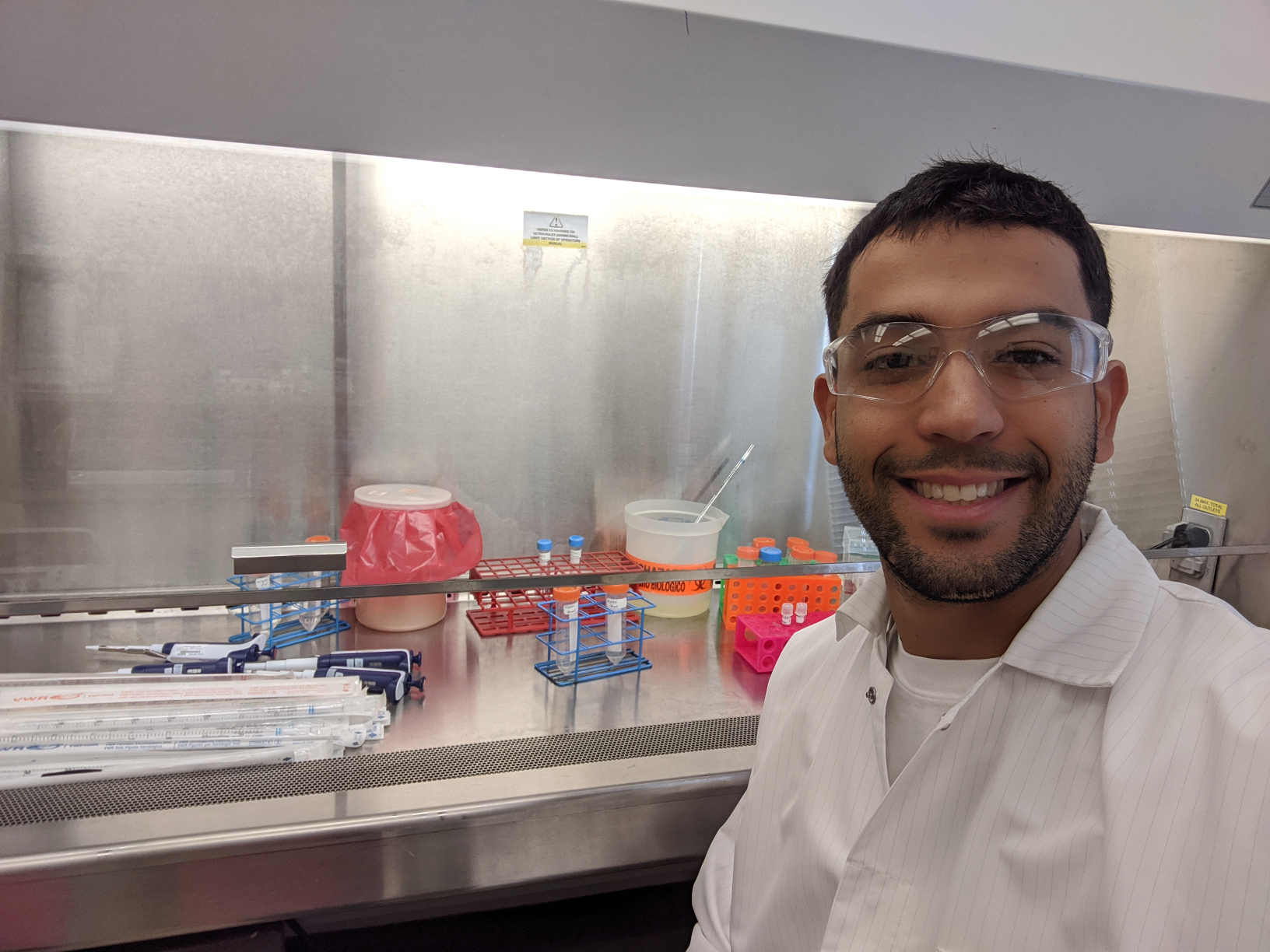
Biomedical research, especially infectious disease, cancer, genomics, and animal models of human disease
The mission of the Comparative Medical Science Training Program (CMSTP) is to prepare post-D.V.M. Ph.D. students to become exceptional veterinarian-scientists in comparative medicine at the University of California, Davis (UC Davis). This postdoctoral T32 is highly successful in training veterinarian-scientists for research careers, with more than 90% utilizing their research training.
To ensure the success of our new trainees, we have a comprehensive 4-year program at UC Davis, which supports D.V.M.s in pursuit of their Ph.D. We will prepare trainees for the next stage of their careers through provision of research colloquia, individualized mentoring, networking opportunities, and grant writing workshops. Thus, CMSTP provides a comprehensive, integrated research-mentoring program for D.V.M.s at UC Davis, particularly those from historically marginalized and disadvantaged backgrounds, to remove barriers that exist and deter some from pursuing a research career. We are committed to recruiting and retaining a diverse body of trainees.
We have 36 highly qualified faculty trainers to choose as a mentor or a co-mentor if the trainee has already chosen a lab. The CMSTP takes advantage of outstanding research and teaching opportunities in the biological sciences at UC Davis by bringing together faculty from the School of Veterinary Medicine, the nation’s top veterinary school; School of Medicine; College of Engineering; and College of Biological Sciences. Our faculty trainers participate in established Centers and Institutes that promote collaborations and employ diverse evidence-based approaches to solving scientific problems through state-of-the-art equipment in individual labs, as well as campus shared facilities.
The objectives of the CMSTP are to (1) prepare all of our trainees to become future leaders in academia, government service, public health, and biomedical research; (2) provide greater exposure to career paths outside academia; (3) maintain the average time of 4 years to degree; and (4) attract and train a diverse group of veterinarian-scientists.
Contact Information
University of California, Davis
Center for Comparative Medicine
One Shields Avenue
Davis, CA 95616
https://www.vetmed.ucdavis.edu/research/cmstp
Grant Number: T32OD011147
Program Director
Sara Thomasy, D.V.M., Ph.D., DACVO
Phone: 530-752-1770
[email protected]
Colorado State University
Title
Biomedical Research Training for Veterinarians
Major Areas of Interest
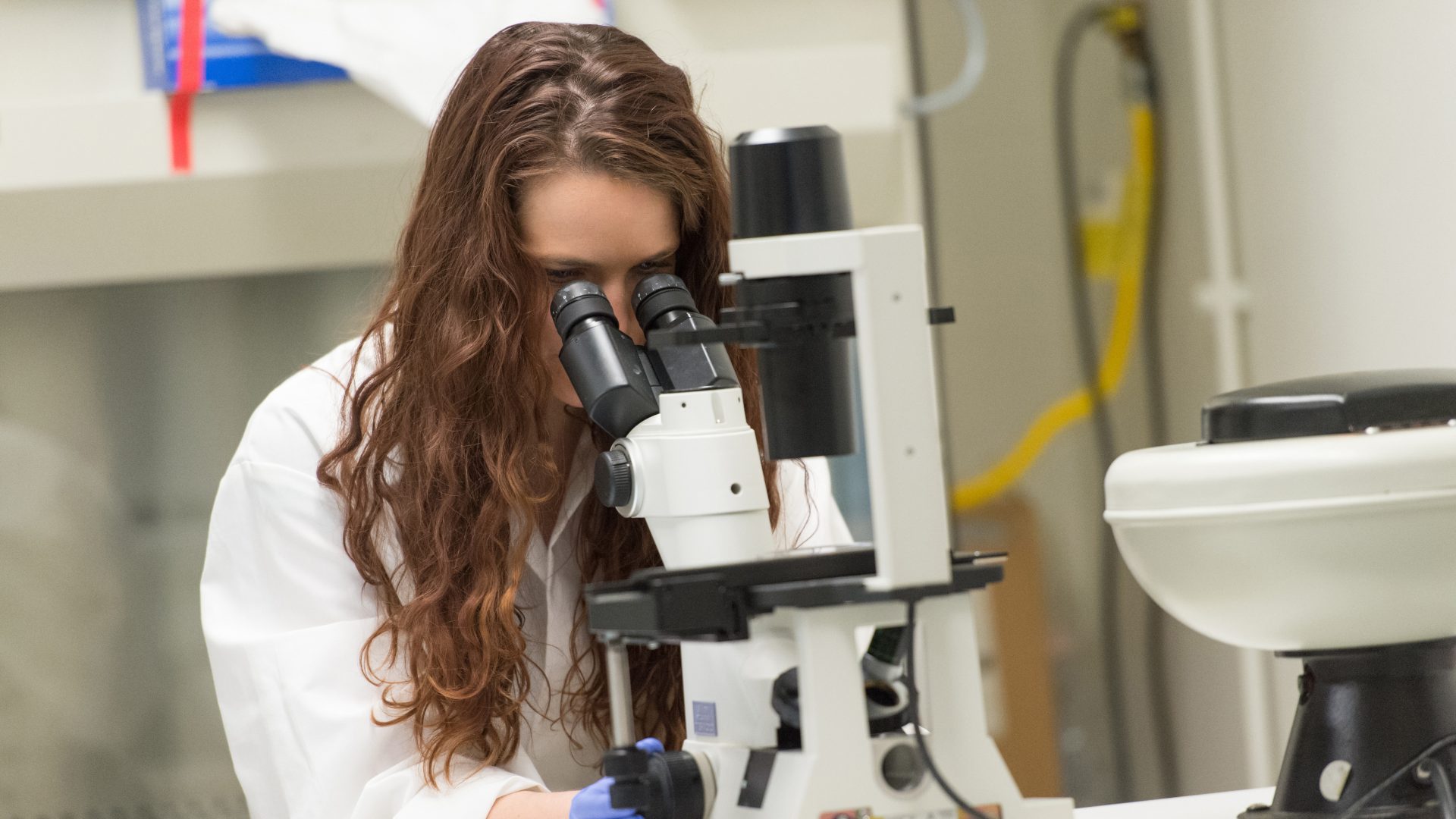
- Prion biology
- Immunology
- Mycobacterial pathology
- Retroviral research
- Vector-borne and infectious disease
- Cancer biology and diagnostics
- Reproductive technology
- Orthopedic research
- Pathobiology
- Translational and comparative medicine
Contact Information
Grant Number: T32OD010437
Program Co-Director
Kelly Santangelo, D.V.M., Ph.D., DACVP
Phone: 970-491-5015
[email protected]
Johns Hopkins University
Major Areas of Interest
Infectious diseases, immunology, cancer biology, neuroscience, experimental pathology, genomics, translational animal models, data science
Based at a leading academic medical center, the Johns Hopkins Training Program provides outstanding biomedical research training opportunities for veterinarians interested in careers as veterinary scientists. The training program is based in the Department of Molecular and Comparative Pathobiology, a basic science department linked to our comparative medicine mission in animal care including clinical lab animal medicine and comparative pathology. Ph.D. and postdoctoral research training can be performed in a wide variety of disciplines across the university and may be combined with complementary training in lab animal medicine or anatomic pathology.
Contact Information
Momina Malik
[email protected]
Grant Number: T32OD011089
Director
Joseph L. Mankowski, D.V.M., Ph.D.
Phone: 410-955-9770
[email protected]
University of Minnesota
Major Areas of Interest
The Comparative Medicine and Pathology Training Program provides up to 3 years of support for veterinarians to participate in state-of-the-art biomedical research training with the goals of providing individuals with the broad-based knowledge, quality communication skills, and advanced research training essential for a career as a veterinarian scientist. The robust training program, which is housed in the College of Veterinary Medicine, is uniquely positioned to perform cooperative, translational research with other colleges at the University of Minnesota, including the Medical School; School of Public Health; College of Biological Sciences; School of Dentistry; College of Food, Agricultural, and Natural Resource Sciences; and College of Education and Human Development. This ensures a steady supply of interdisciplinary opportunities for faculty and students to promote “One Health.” Close connections with these other colleges have enriched the opportunities of current and past trainees, allowing them to work with faculty mentors, thesis committee members, and instructors representing a wide range of disciplines, including emerging and zoonotic infectious disease, pathology, pharmaceutics, genetics and genomics, comparative and translational medicine, public health, oncology, immunology, orthopedics, and epidemiology. The diverse interests of faculty, centers and institutes, and graduate classes allow trainees to tailor their curricular and professional development activities to meet their individual training needs. Past trainees have successful careers as academic, government, and private-sector researchers. A strong alumni connection with former fellows enriches the training experience through near-peer mentoring to trainees.
Contact Information
Office of the Associate Dean for Research
College of Veterinary Medicine
University of Minnesota
225 Veterinary Medical Center
1365 Gortner Avenue
St. Paul, MN 55108
https://sites.google.com/umn.edu/dvmt32/home
Grant Number: T32OD010993
Principal Investigator
Molly McCue, D.V.M., M.S., Ph.D., DACVIM
Phone: 612-624-9320
Fax: 612-624-8753
[email protected]; [email protected]
University of Missouri-Columbia
Major Areas of Interest
Research opportunities are available in more than 40 well-funded research laboratories in a broad range of areas related to comparative medicine research including, but not limited to, studies in genetics of disease; impact of microbiome; disease pathogenesis; genetic engineering; immunobiology; cardiovascular, renal, and neurological function; cancer research; cryobiology and assisted reproduction; and biomedical engineering. Furthermore, the presence of several NIH-funded animal Resource Centers on campus, including the MU Mutant Mouse Resource and Research Center, Rat Resource and Research Center, National Swine Resource and Research Center, and one of 12 NIH-funded regional biocontainment laboratories provide a unique training environment for research, development, and characterization of genetically engineered animals.
The MU Comparative Medicine Training Program (CMP) provides a substantive foundation for a competitive research career through (1) coursework and seminars that give a broad exposure to biomedical sciences, comparative medicine, statistics, and experimental design; (2) an intense research experience to provide competence in state-of-the-art experimental methodology; (3) instruction in fundamental concepts of funding procurement and development of grant-writing skills; (4) instruction in all aspects of lab and project management including development of transferable skills; (5) instruction in scientific rigor and transparency in experimental design and study reproducibility and translatability with an emphasis on animal modelling; (6) training in the ethical conduct of research; and (7) increasingly independent experience in every stage of the scientific research process. This training enables CMP graduates to initiate careers in research, become leaders in the field of comparative medicine, and fill the critical void of veterinarians in biomedical research.
Contact Information
Comparative Medicine Program
University of Missouri
Department of Veterinary Pathobiology
College of Veterinary Medicine
4011 Discovery Drive
Columbia, MO 65201
Grant Number: T32OD011126
Program Directors
Craig L. Franklin, D.V.M., Ph.D., DACLAM; Elizabeth C. Bryda, Ph.D.
Phone: 573-882-6623; 573-882-5504
[email protected]; [email protected]
Cornell University
Major Areas of Interest
The Cornell Graduate Training Program in Comparative Medicine combines the very best that Cornell offers in the form of didactic graduate-level instruction, faculty supervision, and training related activities. Trainees can follow one of two tracks: one is geared to a career in basic research and a second to a career in translational science. Training is structured to ensure the orderly progression of scholars to independence. Research areas available to trainees are broad and include infectious disease, immunology, epidemiology, cancer biology, cell biology and signal transduction, genomics and genetics, developmental biology, molecular medicine, biomedical engineering, and neuroscience.
The program combines independent, faculty-guided research with formal didactic instruction in cell and molecular biology, genomics, and biostatistics; career counseling; and a variety of professional enrichment activities calculated to develop the trainees’ critical capacity, communication, and teamwork skills. Graduate scholars would earn the Ph.D. degree. The average time to degree for veterinarians seeking a Ph.D. at Cornell University is 4.3 years. A Graduate Research Assistantship provided by the College of Veterinary Medicine at Cornell provides stipend to all scholars during the first 9 months of the Ph.D. while trainees are completing three laboratory rotations.
Almost all Program alumni go on to obtain faculty positions or positions in industry or government. The mission of our program is to train veterinary scientists that can meet the national need for trained veterinarians within academia, industry, public health, and government to address old and new problems relating to animal and human health.
Contact Information
Grant Number: T32OD011000
Program Directors
John S. Parker, B.V.M.S., Ph.D.; Robert Weiss, Ph.D.
[email protected]
Wake Forest University
Major Areas of Interest
The Department of Pathology, Section on Comparative Medicine, of Wake Forest University School of Medicine offers four postdoctoral fellowships in comparative medicine. These positions provide a unique opportunity for motivated graduate veterinarians interested in advanced biomedical research training leading to an independent research career. The fellowship typically leads to a Ph.D. degree.
Research opportunities include internationally recognized programs in primate research, aging, women’s health, cardiovascular disease, cancer biology, radiation biology, regenerative medicine, diabetes, reproductive system disorders, and substance abuse.
The 27 training faculty committed to the program represent a variety of basic and clinical disciplines. The broader school of medicine community consists of more than 1,200 faculty comprising 41 academic departments and 26 Centers or Institutes. Major institutional resources include the Clinical and Translational Science Institute, national primate research resources, Wake Forest Baptist Comprehensive Cancer Center, Hypertension and Vascular Research Center, Wake Forest Institute for Regenerative Medicine, and Sticht Center for Healthy Aging and Alzheimer's Disease Prevention.
Institutionally supported training programs in laboratory animal medicine and veterinary anatomic pathology are also available.
Contact Information
Wake Forest University School of Medicine
Pathology/Comparative Medicine
Medical Center Boulevard
Winston-Salem, NC 27157-1040
Grant Number: T32OD010957
Principal Investigator
J. Mark Cline, D.V.M., Ph.D., DACVP
Professor of Pathology/Comparative Medicine and Radiation Oncology
Phone: 336-716-1564
Fax: 336-716-1515
[email protected]
Texas A&M University
Title
T32 Comparative Biomedical Research Training for Veterinarians (CBRT)
Major Areas of Interest
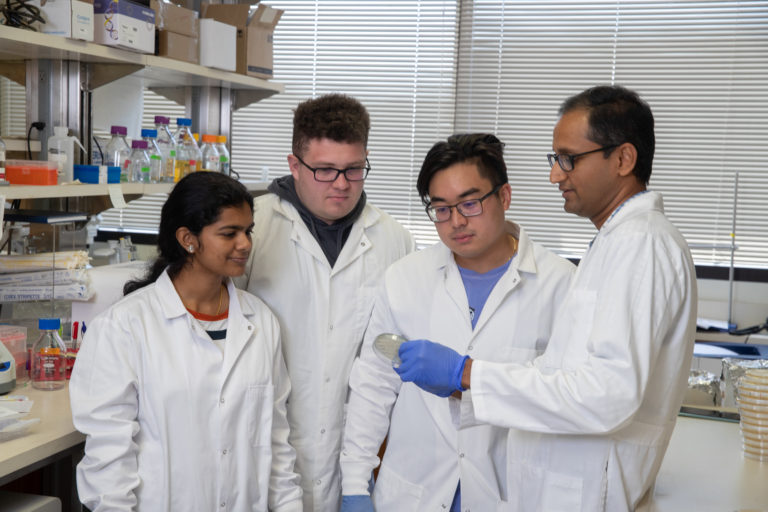
Biomedical research: biomedical genomics and bioinformatics, diagnostics and therapeutics, infection, immunity and epidemiology, physiology and developmental biology
Major research areas include infectious and metabolic diseases, toxicology, nutrition, developmental biology, discovery of therapeutic molecules, cancer biology, and neuroscience.
The T32 Comparative Biomedical Research Training (CBRT) Program at Texas A&M University has been a successful interdisciplinary program for over a decade. The program continues to be refined in response to the national need for Doctors of Veterinary Medicine (D.V.M/V.M.D) with expertise in cutting-edge biomedical research skills. The mission of the CBRT is to provide trainees with expertise that prepares them to adapt to emerging technologies to solve biomedical and health-related problems. In addition, our program places paramount importance in enabling its trainees to become successful principal investigators in the biomedical research field, able to secure substantial funding to forward their research. The group of research mentors include more than 30 participating faculty across the School of Veterinary Medicine & Biomedical Sciences (VMBS), School of Medicine, School of Public Health, College of Agriculture and Life Sciences, and College of Arts and Sciences. The prospective CBRT trainees/mentees are offered a broad range of research options under a high-level mentor support framework offering high outstanding quality training in basic biomedical research.
Contact Information
T32 Comparative Biomedical Research Training for Veterinarians (CBRT)
Texas A&M University
School of Veterinary Medicine and Biomedical Sciences
Department of Veterinary Pathobiology (VTPB)
Veterinary & Biomedical Education Complex
660 Raymond Stotzer Pkwy
College Station, TX 77843-4474
Grant Number: T32OD011083
Program Director
Dr. Albert Mulenga, B.V.M. (D.V.M.), M.V.Sc., Ph.D.
Professor and Interim Department Head
Fulbright Fellow | Presidential Impact Fellow
Department of Veterinary Pathobiology (VTPB)
Phone: 979-862-2924
Lab office: 979-458-4300
Fax: 979-458-0321
[email protected]; [email protected]
Virginia Polytechnic Institute and State University, Blacksburg, Virginia
Major Areas of Interest
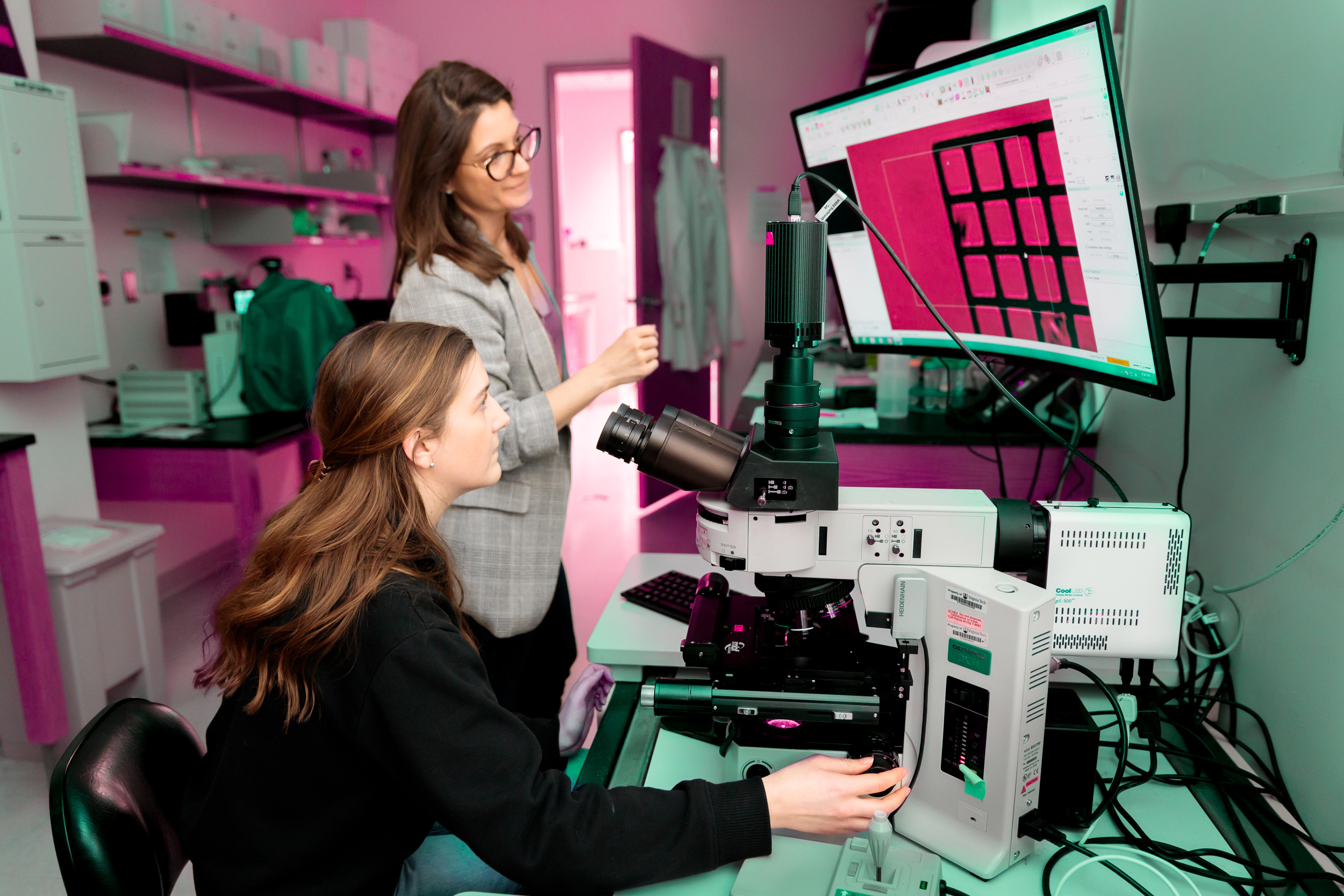
The NIH T32 post-D.V.M. Animal Model Research for Veterinarians (AMRV) training program at the Virginia-Maryland College of Veterinary Medicine at Virginia Tech provides structured in-depth training to veterinarians in the areas of animal models of human diseases in the fields of immunology and inflammation, infectious diseases, neurobiology, public health, cardiology, and regenerative medicine. Trainees will enroll in the Biomedical and Veterinary Sciences graduate program that will expose them to state-of-the-art research skills leading to a Ph.D. degree and challenge them to become independent problem-solvers. After completion of the training program, trainees are expected to assume leadership roles related to the nation's biomedical research agenda in academia, government, and industry.
Contact Information
Virginia-Maryland College of Veterinary Medicine
Virginia Polytechnic Institute and State University
Blacksburg, VA 24061-0042
Grant Number: T32OD028239
Program Director
Xiang-Jin Meng, M.D., Ph.D.
Phone: 540-231-6912
[email protected]
University of Wisconsin School of Veterinary Medicine
Major Areas of Interest
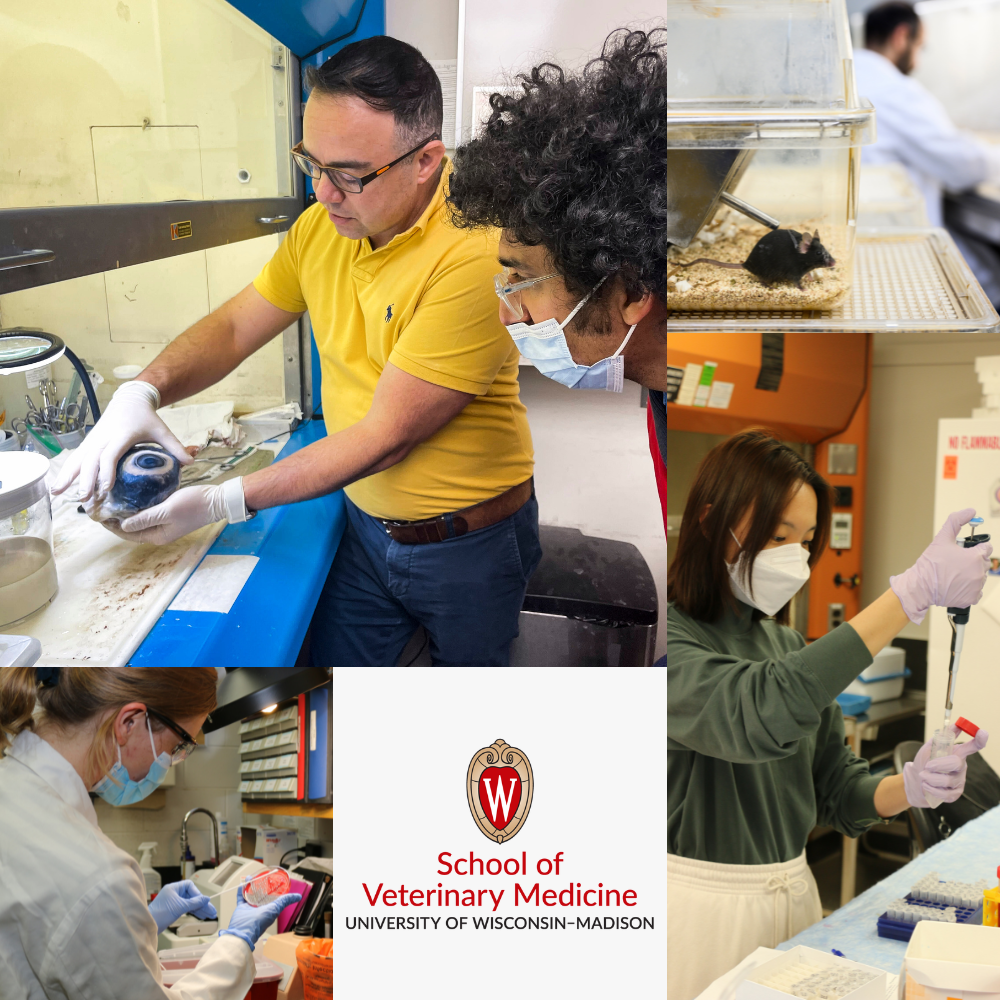
The University of Wisconsin–Madison School of Veterinary Medicine, Comparative Biomedical Sciences Ph.D. program offers cutting-edge research training to graduate veterinarians in infectious diseases (bacteriology/immunology/parasitology/virology), developmental biology, oncology, regenerative medicine, neuroscience, and cellular and molecular physiology.
Contact Information
Grant Number: T32OD010423-16A1
Training Grant Director
Marulasiddappa Suresh, D.V.M., Ph.D.
[email protected]
Program Administrator
Jenny Dahlberg
[email protected]
Program Director
Marulasiddappa Suresh
Phone: 608-265-9791
Fax: 608-890-1774
[email protected]
University of California, Davis
Major Areas of Interest
The University of California, Davis (UC Davis) Veterinary Student Research Training Program provides summer research training to veterinary students. The overall objective of the program is to place interested students with mentors in active laboratories that are engaged in biomedical research. Students are fully immersed in NIH-funded laboratories to achieve experience in research and to gain an appreciation for the importance of research to the veterinary profession. The Program includes faculty from both the School of Medicine and School of Veterinary Medicine who are engaged in research with major areas of emphasis in infectious diseases, cancer, and genomics. The Program interfaces with the campus laboratory animal medicine program, the adjacent California National Primate Research Center, and residency programs in veterinary pathology and laboratory animal medicine. Students are placed with mentors in various programs in the School of Medicine or School of Veterinary Medicine, allowing customization of training emphasis to the students' interests. In addition to research exposure, students participate in seminars on ethics of animal-related research and safety and symposia in which they present their research progress.
Contact Information
University of California, Davis
School of Medicine and School of Veterinary Medicine
One Shields Avenue
https://www.vetmed.ucdavis.edu/research/student-research/star
Grant Number: T35OD010956
Principal Investigator
Danika Bannasch, D.V.M., Ph.D.
Phone: 530-754-8728
[email protected]
Georgia
Major Areas of Interest

The aim of the Georgia Veterinary Scholars Research Program (GVSP) at the University of Georgia College of Veterinary Medicine (UGA-CVM) is to immerse academically talented veterinary students from across the United States in cutting-edge research, inspiring them toward careers in biomedical research and fostering in them a deeper understanding of the goals and needs for veterinarians in research.
Contact Information
Grant Number: T32/T35OD010433
Program Director
Susan Sanchez, Ph.D., FRSB
Phone: 706-542-4200
[email protected]
University of Illinois
Major Areas of Interest
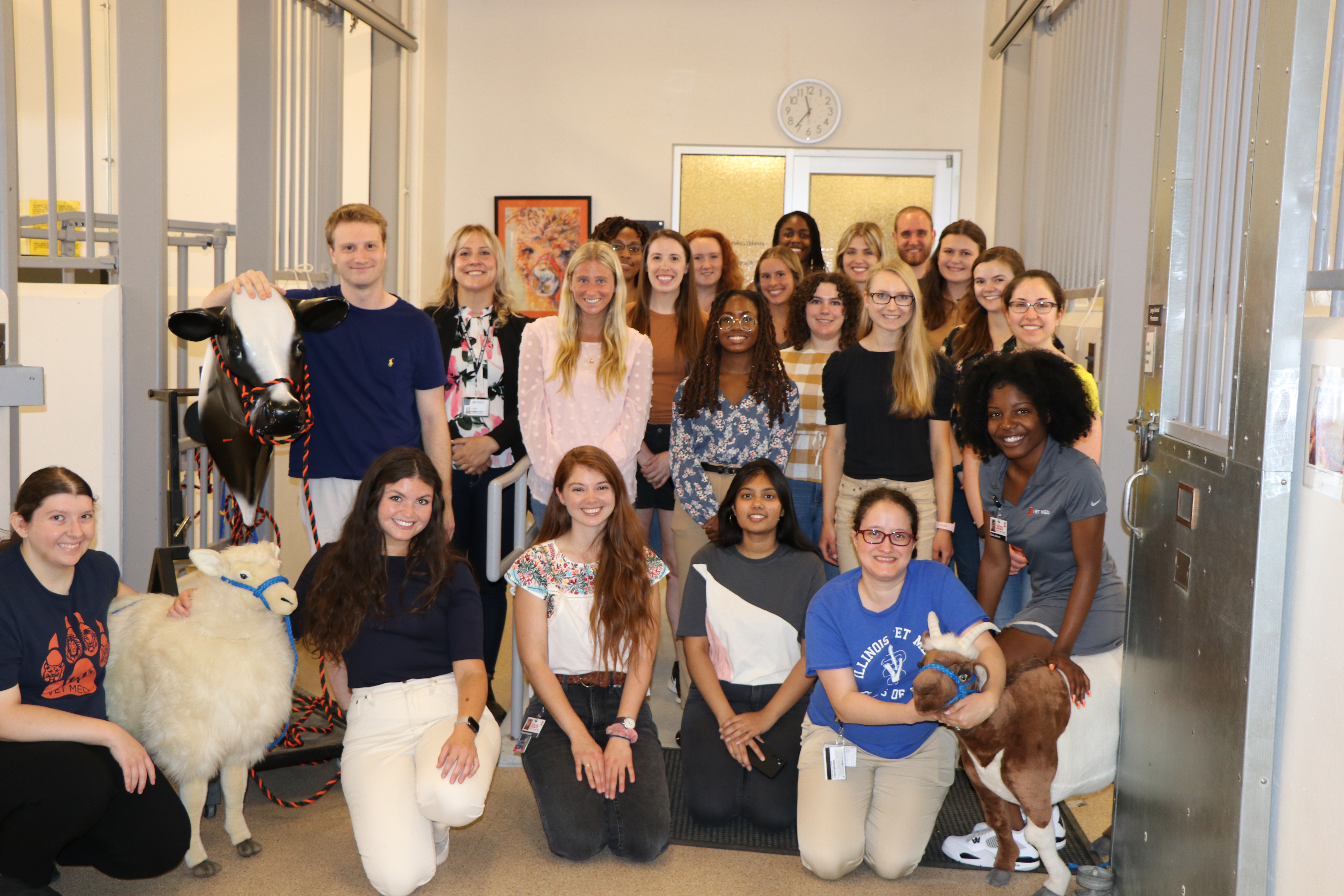
The focus of this training program is translational biomedical research, broadly encompassing the research areas of infectious diseases, reproductive biology, epidemiology, neuroscience, oncology, toxicology, nutrition, and behavior. The goal of this Summer Research Training Program is to identify and facilitate the career progression of veterinary students who have the ability and motivation to become a veterinarian scientist. Veterinary students are matched to one of 40 research laboratories that investigate a broad range of biomedical research topics. In collaboration with the faculty mentor, trainees formulate a testable hypothesis, design the experiments, collect and analyze the experimental data, and report the conclusions. Extensive instruction in the Responsible Conduct of Research is provided through orientation week activities and a seminar series.
Contact Information
University of Illinois Urbana-Champaign
College of Veterinary Medicine
2001 Lincoln Avenue, 2522 VWBSB
Urbana, IL 61802
Grant Number: T35OD011145
Principal Investigator
Megan Mahoney, Ph.D.
Phone: 217-333-7578
[email protected]
Iowa State University
Major Areas of Interest
The Iowa State University Veterinary Summer Scholar Program is designed to introduce veterinary medicine students to research in a wide array of areas, such as clinical medicine, animal science, public health, epidemiology, pharmacology, biomechanics, neuroscience, immunology, parasitology, molecular genetics, and cellular or molecular pathology.
Contact Information
Grant Number: T35OD027967
Program Director
Jodi McGill, Ph.D.
Phone: 515-294-3647
[email protected]
Kansas State University
Major Areas of Interest
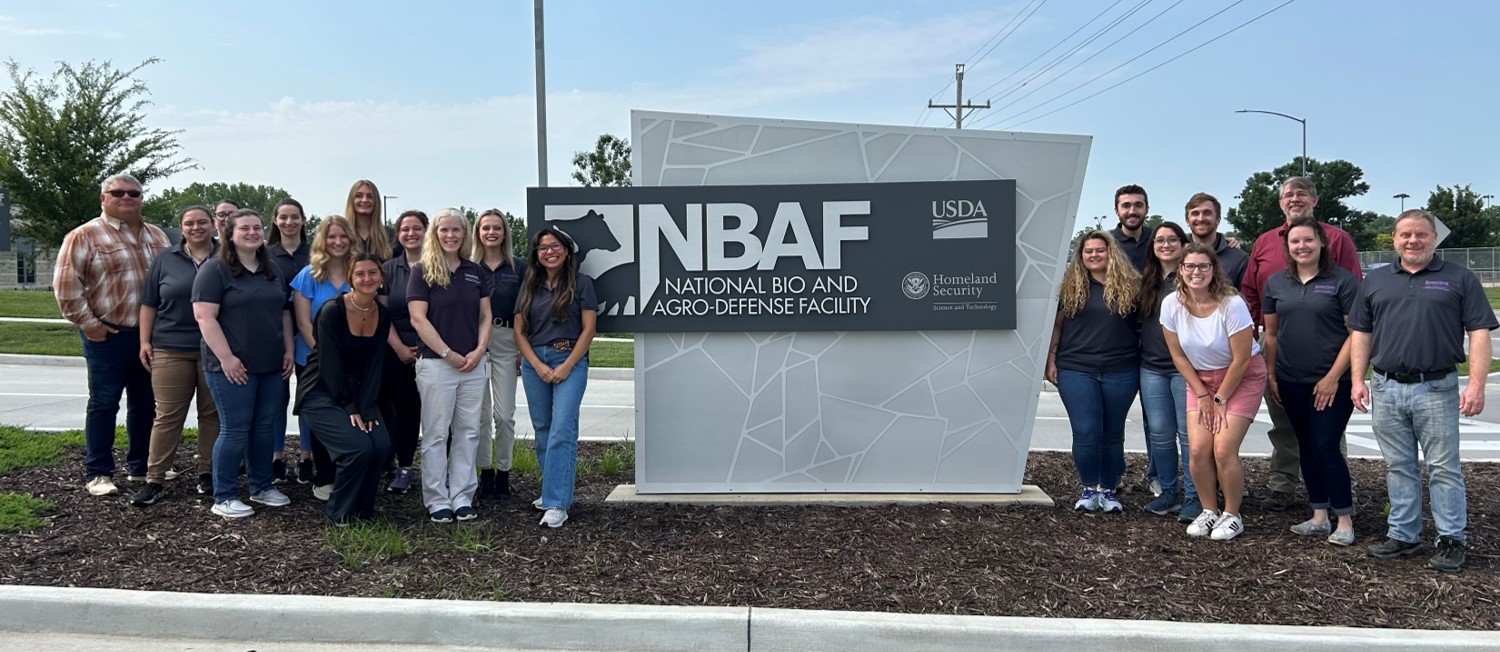
The Veterinary Research Scholars Program (VRSP) at Kansas State University (KSU) is a 3‑month summer research experience where veterinary students are paired with faculty researchers to conduct summer research. The goal of the VRSP is to introduce veterinary students to biomedical research through an engaging summer experience and to encourage these talented veterinary professional students to enter veterinary careers involving research. There are many excellent faculty researchers who mentor scholars in this program, both within the College of Veterinary Medicine and across the KSU campus and local U.S. Department of Agriculture (USDA) National Bio and Agro-Defense Facility (NBAF) facilities. Faculty mentors associated with the VRSP are both clinical and basic scientists and have overlapping strengths providing scholars experience in four areas of research excellence: (1) epithelial function in health and disease, (2) infection–immunity–public health, (3) animal models–translational research, and (4) basic and applied pharmacology. Throughout the summer, scholars work with their mentors day-to-day to learn laboratory techniques and various procedures for data collection and participate in weekly journal clubs and interactive workshops to learn about research ethics, how to present research findings, and veterinary career opportunities involving research. Scholars also meet veterinary researchers from corporate and government settings and tour various facilities to learn about the many opportunities available to veterinarians. At the end of the summer, scholars present their research as a poster at our KSU Summer Research Poster Session and at the National Veterinary Research Symposium.
Contact Information
Kansas State University
College of Veterinary Medicine
1800 Denison Ave
Manhattan, KS 66506
www.vet.k-state.edu/research/student-opportunities/vet-scholar
Grant Number: T35OD010979
Program Directors
Bruce Schultz, Ph.D.
Phone: 785-532-4839
Fax: 785-532-4557
[email protected]
Kate KuKanich, D.V.M., Ph.D., DACVIM (SAIM)
Phone: 785-532-4282
[email protected]
Michigan State University
Major Areas of Interest
The training program at Michigan State University is designed to provide short-term, mentored research training to students at the beginning of their veterinary training and inspire them for careers in biomedical and translational research. Veterinarians are uniquely qualified to advance health of humans, animals, and the environment via their in-depth training and knowledge in (1) population systems, food safety, and security; (2) recognition and control of infectious diseases that are transmitted among animals and humans (interspecies); and (3) spontaneous animal models of human diseases. With the additional research training that will be acquired through this program, these future veterinary-scientists will be primed to pursue scientific interrogations to address the gaps in knowledge in the animal-human-ecosystem interface and various public health challenges facing the nation and make significant contributions throughout their careers.
Key words: One Health, comparative medicine, spontaneous animal models, infectious disease, antimicrobial resistance, vector biology, microbial pathogenesis, vaccines, novel diagnostics
Contact Information
College of Veterinary Medicine
Michigan State University
784 Wilson Road, G300
East Lansing, MI 48824
Phone: 571-353-3145
Grant Number: 2T35OD016477-21A1
Program Director
Srinand Sreevatsan, M.V.Sc., M.P.H., Ph.D.
Professor, Associate Dean of Research and Graduate Studies Phone: 571-353-3745
[email protected]
Mississippi State University
Major Areas of Interest
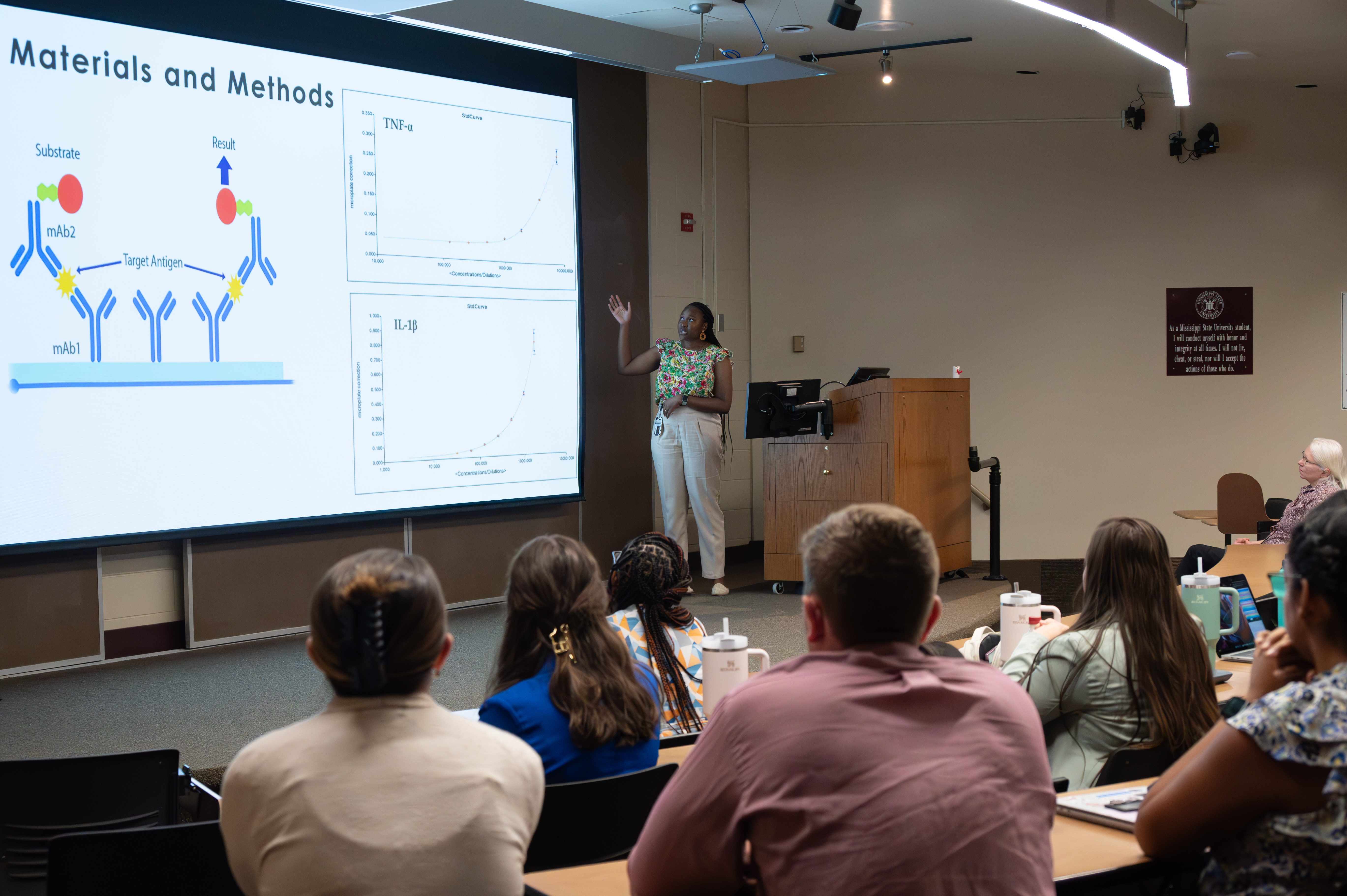
Toxicology/biomedical research (including animal models for human disease)
Population medicine (including antimicrobial stewardship)
Infectious diseases (bacteriology, immunology, parasitology, and virology)
The Summer Research Experience at Mississippi State University College of Veterinary Medicine is called the Vet Med Research Scholars (VMRS) program. The VMRS program is a 12-week investigative program designed to provide veterinary students with training in biomedical research. It provides skills that not only encourage pursuit of research careers but help students develop into leaders within their veterinary profession. Our program is run in conjunction with the Tuskegee University College of Veterinary Medicine, providing 9 positions at Mississippi State and 3 positions at Tuskegee. Major areas of interest within the Tuskegee Veterinary Scholars Program's include One Health, veterinary medicine, and biomedical research.
Contact Information
Grant Number: T35OD010432
Principal Director, Mississippi State University
Barbara Kaplan, Ph.D.
Phone: 662-325-1113
[email protected]
Principal Director, Tuskegee
Temesgen Samuel, D.V.M., Ph.D.
Phone: 334-724-4547
[email protected]
Cornell University, College of Veterinary Medicine
Major Areas of Interest
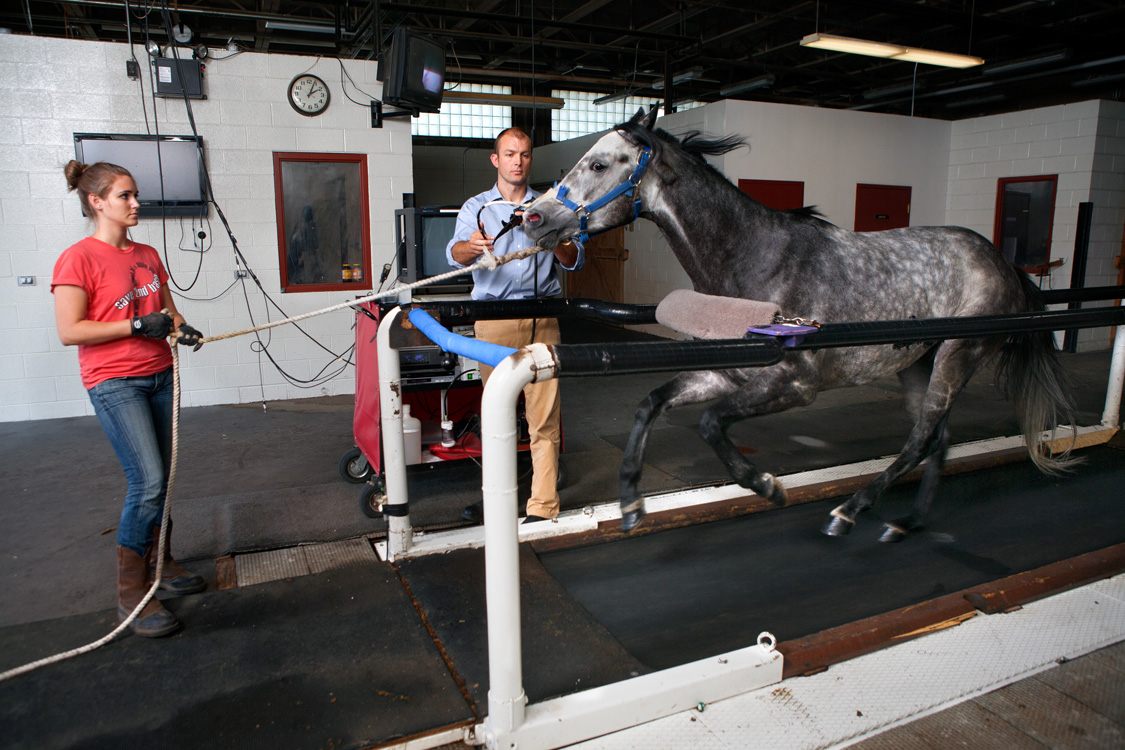
The Cornell Graduate Training Program in Comparative Medicine combines the very best that Cornell offers in the form of didactic graduate-level instruction, faculty supervision, and training-related activities. Trainees can follow one of two tracks: one is geared to a career in basic research and a second to a career in translational science. Training is structured to ensure the orderly progression of scholars to independence. Research areas available to trainees are broad and include infectious disease, immunology, epidemiology, cancer biology, cell biology and signal transduction, genomics and genetics, developmental biology, molecular medicine, biomedical engineering, and neuroscience.
The program combines independent, faculty-guided research with formal didactic instruction in cell and molecular biology, genomics, and biostatistics; career counseling; and a variety of professional enrichment activities calculated to develop the trainees’ critical capacity, communication, and teamwork skills. Graduate scholars would earn the Ph.D. degree. The average time to degree for veterinarians seeking a Ph.D. at Cornell University is 4.3 years. A Graduate Research Assistantship provided by the College of Veterinary Medicine at Cornell provides stipend to all scholars during the first 9 months of the Ph.D. while trainees are completing three laboratory rotations.
Almost all program alumni go on to obtain faculty positions or positions in industry or government. The mission of our program is to train veterinary scientists that can meet the national need for trained veterinarians within academia, industry, public health, and government to address old and new problems relating to animal and human health.
Contact Information
Grant Number: T35OD010946
Program Directors
John S. Parker, B.V.M.S., Ph.D.; Robert Weiss, Ph.D.
[email protected]
Wake Forest University
Major Areas of Interest
Nonhuman primate medicine, laboratory animal medicine, comparative pathology, anatomic pathology, regenerative medicine, gerosciences, neurosciences and addiction, Alzheimer’s disease, cardiovascular disease, and cancer
The Summer Veterinary Student Research Fellowship at Wake Forest University provides a unique biomedical research experience. Our small program is one of the few veterinary research fellowships embedded in a research-intensive medical hospital. We have our students affiliated with the Department of Pathology, which has a research section on comparative medicine, that is enriched with D.V.M.-faculty and the home for laboratory animal and pathology residencies. Students will work with faculty to create and complete a research proposal over the summer, learning various laboratory, advanced imaging, and pathological techniques. Project are enriched with the study of animal models of human disease, predominantly nonhuman primates but also pigs, rodents, and other laboratory species.
Contact Information
Grant Number: T35OD010946
Program Director
Kylie Kavanagh, D.V.M., M.S., M.P.H.
Professor of Pathology/Comparative Medicine
Phone: 336-713-1475
Fax: 336-716-1515
[email protected]
The Ohio State University
Major Areas of Interest
The training program at The Ohio State University provides short-term intensive research experiences to professional veterinary medical students. The program is based upon a research-intensive summer experience that is part of a larger Summer Research Program. First- and second-year veterinary students select mentors from graduate faculty with primary appointments in Ohio State’s Colleges of Veterinary Medicine (CVM); Medicine; Public Health; and Food, Agricultural, and Environmental Sciences. Projects are developed in collaboration between student and mentor, assuring that the project reflects student interests and ideas. Development of the proposal and preliminary training activities occur prior to summer, and presentation and publication of research results are emphasized in the period following summer. The latter includes an end-of-summer research symposium, during which students make oral presentations of research results and poster/platform presentations at the CVM Research Day the following spring. The faculty-mentor-to-student ratio is 3.3-to-1, providing many training options that ensures a fit with student interests. Summer seminars emphasize science communication, commercialization and intellectual property, and career development. A journal club reinforces concepts in scientific rigor and reproducibility. Topics reflect the breadth of summer projects, and individual sessions include moderation of student presentations by a faculty subject matter expert. A measure of success is a high percentage of student projects leading to publications in peer-reviewed scientific journals.
Contact Information
The Ohio State University College of Veterinary Medicine
1900 Coffey Road
Columbus, OH 43210
https://vet.osu.edu/research/programs/veterinary-student-research-opportunities
Grant Number: T35OD010977
Program Directors
Michael Oglesbee, D.V.M., Ph.D.
Phone: 614-668-1189
[email protected]
Ian Davis, D.V.M., Ph.D.
Phone: 614-292-2954
[email protected]
University of Pennsylvania
Major Areas of Interest
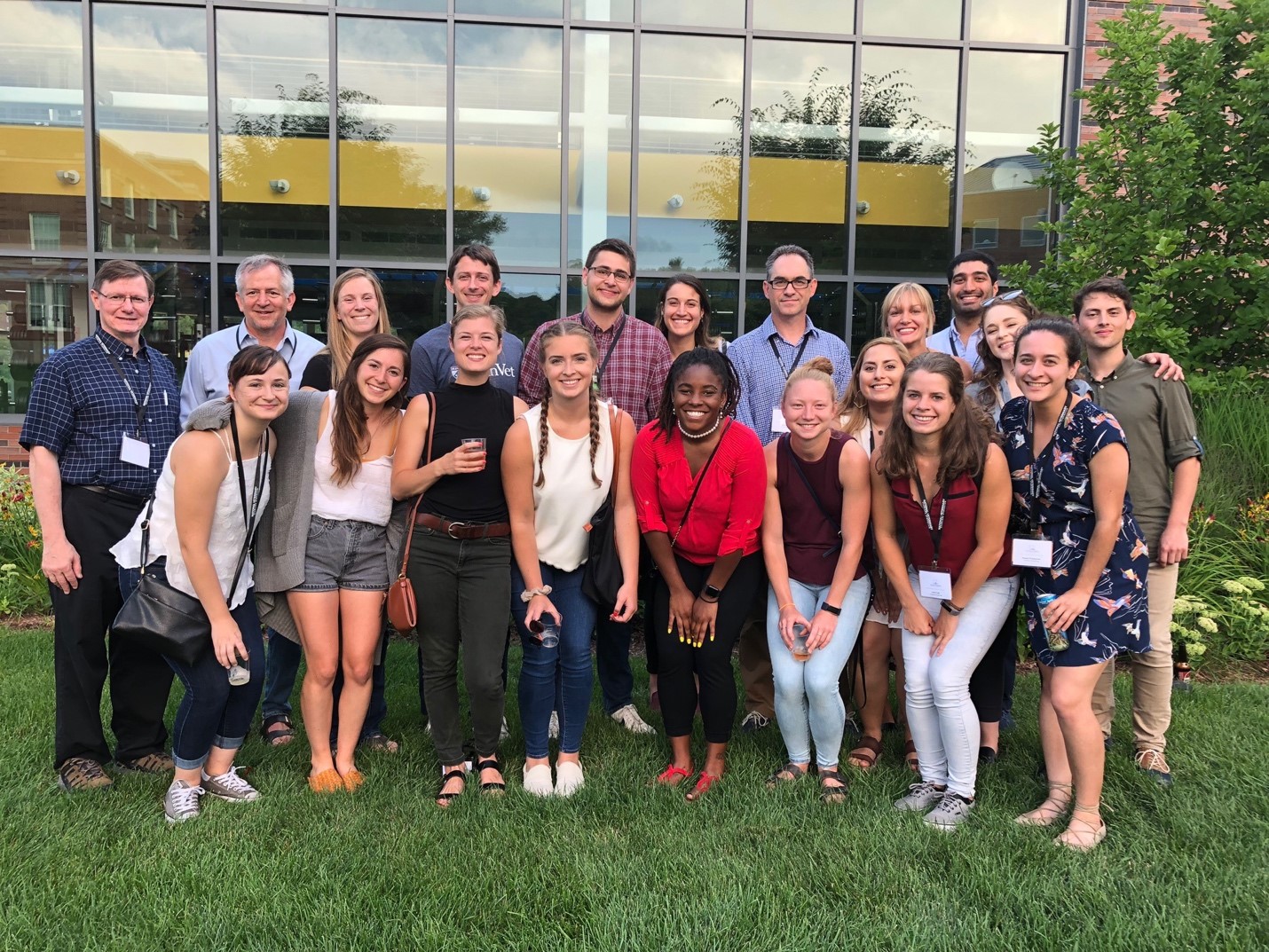
The Penn Vet Short-Term Research Training Program provides research opportunities during the summer months. Students are exposed to multiple areas of biomedical research, including genetics, reproduction, pathogenesis, neurobiology, and cellular and molecular biology. Students gain experience in all aspects of biomedical research including grant writing, bench research, manuscript preparation, poster presentations, and PowerPoint presentations.
Contact Information
University of Pennsylvania
School of Veterinary Medicine
3800 Spruce Street
Philadelphia, PA 19104
Grant Number: T35OD010919
Principal Investigator
Michael Atchison, Ph.D.
Phone: 215-898-6428
[email protected]
Texas A&M University
Major Areas of Interest
The summer Texas A&M University Veterinary Medical Scientist Research Training Program (VMSRTP) provides first- and second-year veterinary students with a robust summer biomedical research experience with experienced NIH-funded mentors and enhanced training in responsible conduct of research methods and scientific communication skills that will enhance their individual research successes and further establish their interest and commitment to veterinary careers in biomedical research. These goals are accomplished through (1) biomedical research in a mentor’s laboratory; (2) at least 8 hours formal training in responsible conduct of research; (3) weekly lunchtime (hour-long) training sessions in scientific communication via oral and poster presentations, abstract and manuscript preparation, as well as training in critical evaluation and presentation of primary journal articles; (4) oral research presentations in the annual Texas A&M VMSRTP Research Symposium; and (5) research poster presentations at the National Veterinary Scholars Symposium. Major areas of research interest by participating faculty mentors within the School of Veterinary Medicine and Biomedical Sciences (as well as the Colleges of Medicine, Science and Agriculture, and Life Sciences) span basic cellular and molecular bench research to translational and clinical research in cancer cell signaling, genetics, and genomics; disease epidemiology and pathogen-host interactions; infectious and vector-borne disease pathogenesis and vaccine development; mechanisms in antibiotic resistance; stem cell biology and regenerative medicine; translational models of musculoskeletal, neurological, and cardiovascular disease; and reproductive and environmental toxicology.
Contact Information
Texas A&M University
School of Veterinary Medicine and Biomedical Sciences
4458 TAMU
College Station, TX 77843-4461
Grant Number: T35OD010991
Principal Investigator
Dana Gaddy, Ph.D.
Phone: 979-862-9134
Fax: 979-847-8981
[email protected]
University of Wisconsin
Major Areas of Interest
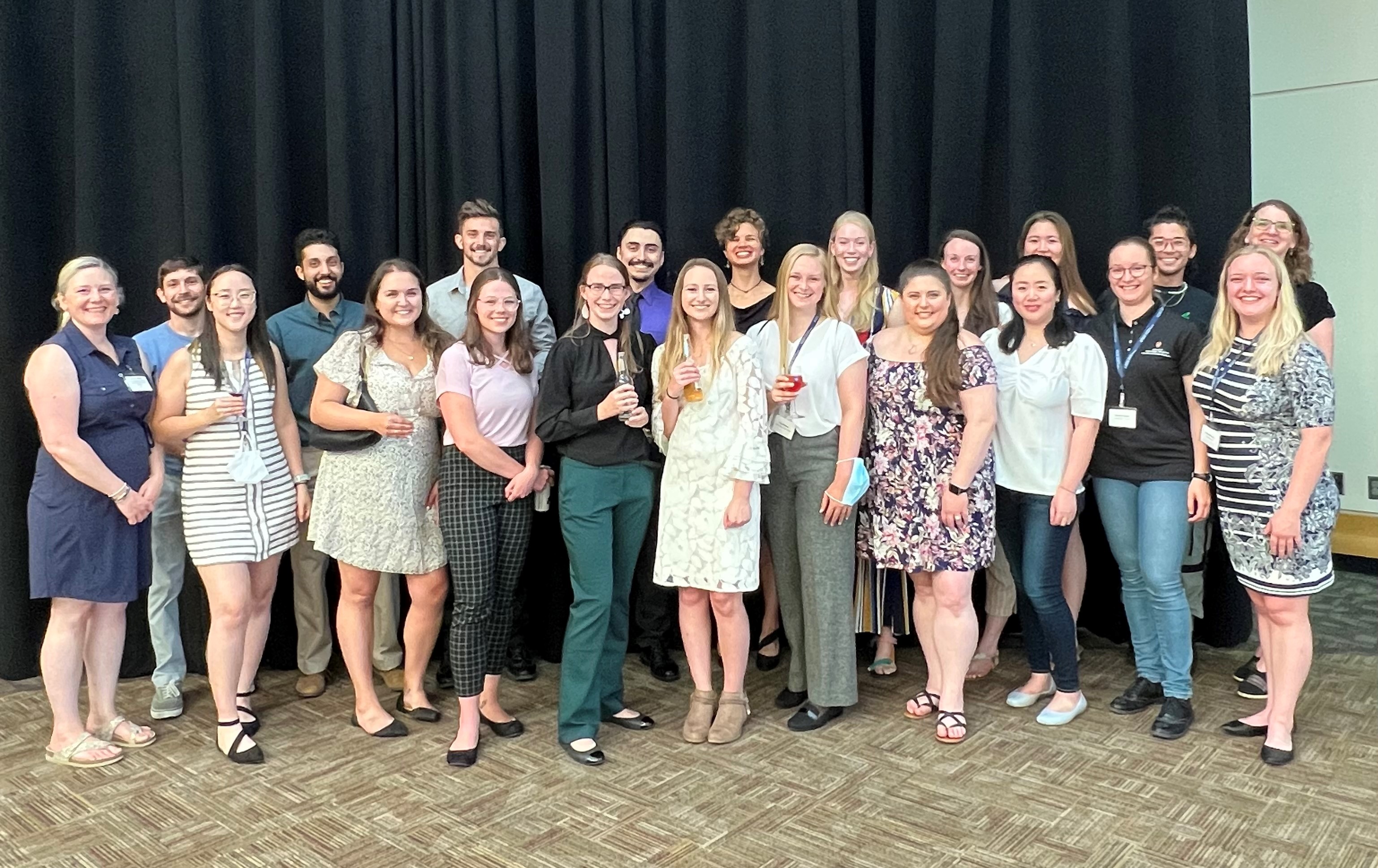
The School of Veterinary Medicine provides an opportunity for current first, second, and third-year veterinary medicine students to work with mentors on a wide variety of research projects. Areas of interest include infectious diseases, mouse models of disease, developmental biology, neurosciences, ophthalmology, oncology, orthopedics, pharmacology, stem cell research, reproductive biology, and transplantation.
Contact Information
University of Wisconsin
Department of Surgical Sciences
School of Veterinary Medicine
2015 Linden Drive
Madison, WI 53706
https://www.vetmed.wisc.edu/research/dvm-student-research-experience/summer-scholars-program/
Grant Number: T35OD011078
Principal Investigator
Joan S. Jorgensen, D.V.M., Ph.D.
Phone: 608-890-2337
[email protected]





